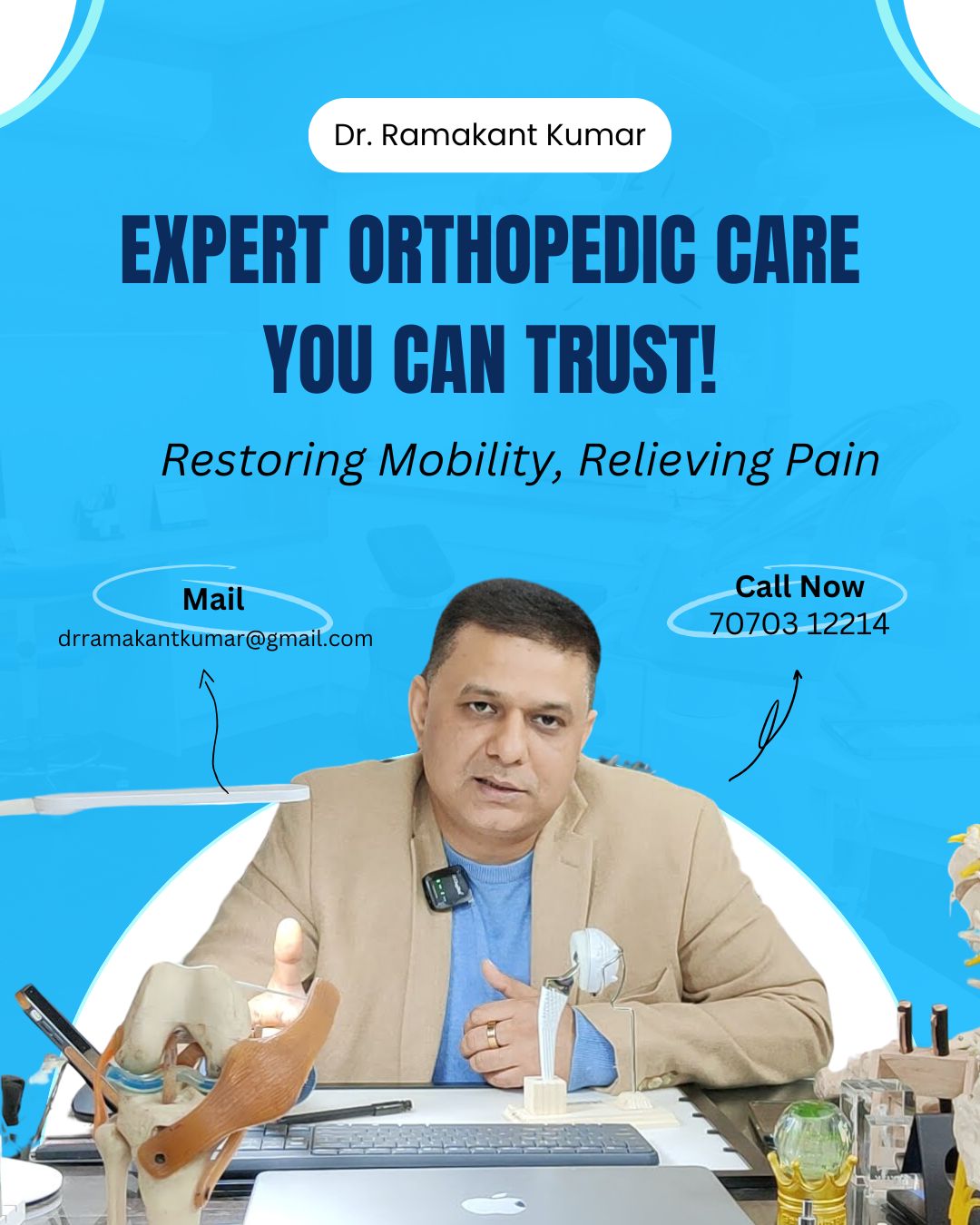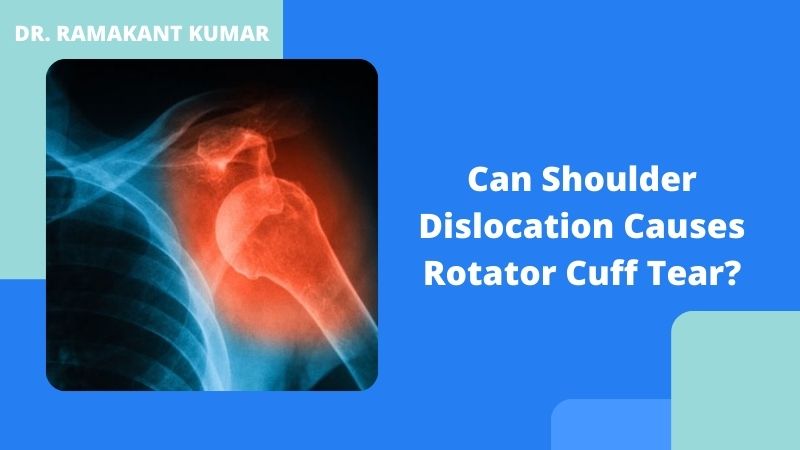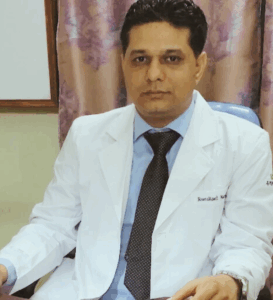The shoulder joint is the most mobile in the body, allowing the arm to move in a variety of directions. Because of its mobility, the joint is naturally unstable, and the shoulder is the most commonly dislocated joint in the body.
Shoulder dislocation occurs when the upper arm’s humeral head is forced out of the shoulder. This, however, can cause wear and tear on the tendons near and around the shoulders.
However, a single such occurrence might result in rotator cuff tears in the shoulder.
But, are there any possible reason which prove whether or not can shoulder dislocation causes rotator cuff tear? To help you get through with this doubt, this blog has provided some good facts for you to look into.
Moreover, one can take advice from a medical professional in the field. One such recommendation includes Dr. Ramakant Kumar, one of the high rated and renowned Shoulder Specialist doctor in Patna.
First off, let us start to get some relevant information on what actually is a rotator cuff tendon.
Contents
What is Meant by Rotator Cuff Muscles?
The rotator cuff is a collection of muscles and tendons located in your shoulder. They assist you in lifting and moving your arms away from your body. The shoulder is a skeletal system joint with a ball and socket joint.
When tendons move away from the arm bone, rotator cuff tears occur. A tear might occur as a result of overuse or another type of injury. Rotator cuff injury affect people of all ages and genders, but adults are more likely to suffer from them. To repair a damaged rotator cuff muscles, some people require surgery.
But, what are the reasons behind these tears? Can shoulder dislocation causes rotator cuff tear? Let’s find the answer for it……
Causes of Rotator Cuff Injury
Can shoulder dislocation causes rotator cuff tear? A fall, for example, can result in a broken collarbone or an anterior shoulder dislocation that tears the rotator cuff.
Rotator cuff tears are more common when the tendon goes down with age and use (degenerative tear). People over the age of 40 are the most vulnerable.
A rotator Cuff Injury Can Happen to Anyone. The Following Things May Enhance Your Risk:
- There is a family history of shoulder issues or rotator cuff injury.
- Incorrect posture.
- Smoking.
- Being over the age of 40.
Degenerative Tears are Caused by a Variety of Factors, Including:
- Bone spurs: bony growths that can develop on the top of the shoulder bone. When you elevate your arm, these bone spurs rub against the tendon.
- Reduced blood flow: As you become older, your blood flow to the rotator cuff diminishes.
- Overuse: Repetitive shoulder movements in sports or at work can strain muscles and tendons, resulting in a rupture.
If you have been habituated with these habits in your daily life for past few years, then there can be chances for you to have rotator cuff injury.
Therefore, one should definitely get a health check from none other than, Dr. Ramakant Kumar, one of the highly recommended and Best Ligament Surgeon in Patna. However, one can get in touch with certain symptoms which might need normal to immediate shoulder dislocation treatment.
Symptoms of Rotator Cuff Injury
Accidental tears produce instant, acute shoulder pain and arm paralysis. Mild pain from degenerative tears may be relieved with over-the-counter pain medications.
The following are symptoms of a rotator cuff tear:
- Raise your arm and you will experience difficulty and pain.
- When you move your arm, you may hear or feel popping or clicking sounds or sensations.
- Shoulder ache that gets worse at night or when you rest your arm.
- Shoulder pain and difficulty lifting items
Tears usually occur on your dominant side, although they can occur on any side. A tear in one shoulder raises the chances of a tear in the other shoulder.
Diagnosis of Rotator Cuff Injury
There might me several rotator cuff injury test that your health professional would tell you to perform. A physical examination will help you understand about how to assess shoulder discomfort, range of motion, and arm strength
You may receive the following to confirm a diagnosis:
- An X-ray is taken to look for arthritis or bone spurs.
- An MRI or ultrasound will be performed to search for tendon tears.
The examination will help you in directing towards the right kind of rotator cuff injury treatment.
Rotator Cuff Injury Treatment
Without treatment, a rotator cuff tear might worsen. A full rip can make it difficult to move your arm. If you do not receive treatment, you may develop chronic shoulder pain and find it difficult to use the injured arm. As a result, depending on the problem, one can choose between non-surgical and surgical rotator cuff injury treatment options.
NON-SURGICAL TREATMENTS
Nonsurgical therapy help about eight out of ten persons with partial tears. The disease can take up to a year to improve.
- Rest and an arm sling will help your shoulder heal.
- Nonsteroidal anti-inflammatory medications (NSAIDs) are used to reduce pain and swelling.
- Rotator cuff exercises can be learned through physical therapy.
- Injections of steroids to relieve pain and swelling
SURGICAL TREATMENT
Most shoulder dislocation surgeries and rotator cuff operations are performed arthroscopically through small incisions, making them minimally invasive procedures. These surgeries are usually done on an outpatient basis, allowing patients to return home the same day.
However, due to age-related degeneration or the severity of certain injuries, some conditions may not be suitable for repair. In such cases, advanced procedures like reverse shoulder replacement, tendon transfer, or scar tissue debridement without repair may be required. Consulting the Best Orthopedic Doctor in Patna ensures accurate assessment and the most appropriate surgical approach for optimal shoulder function and long-term relief.
However, if you have a dislocated shoulder and want to know more on can shoulder dislocation causes rotator cuff tear, you should see Dr. Ramakant Kumar, a renowned orthopaedic surgeon in Patna.
He is a very versatile doctor with extensive experience in the field of Orthopaedics, who can assure you to provide best shoulder dislocation treatment in Patna.
Moreover, if you have any more questions, please leave them in the comments area below.




